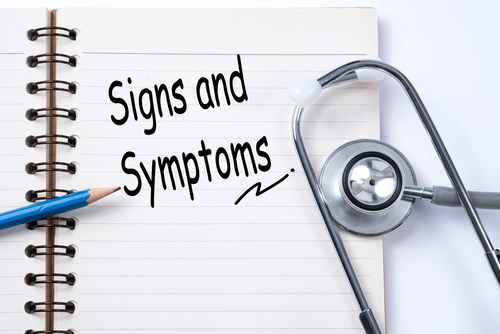Addiction affects the mind, the body, and the spirit. As a result, the signs of addiction spread mentally, behaviorally, socially, physically, and emotionally.
Mental signs of addiction
Addiction changes the way the brain operates. Sometimes referred to as a ‘highjacking’, drugs and alcohol rewire the brain, causing changes in basic operations, executive functions, and more. Mental signs of addiction can include:
- Cravings for drugs and alcohol
- Obsessive thinking about drugs and alcohol
- Thoughts about manipulation or strategy to obtain and use drugs and alcohol
- Quickly disregarding negative consequences which might result from using drugs and alcohol
- Finding justifications and excuses for using drugs and alcohol.
Behavioral signs of addiction
An impaired mental state leads to a change in behavior. Behavioral changes will vary depending on the substance of choice. For example, a stimulant drug like cocaine or crystal meth will typically lead to more erratic forms of behavior. Depressant drugs, like opioids, benzodiazepines, and alcohol, on the other hand, will lead to more subdued forms of behavior. A loved one’s distinct personality and unqique characteristics will also play a part.
Addiction does lead to some behaviors which are consistent and common, despite drug of choice:
- Increased isolation
- Lying more often and being caught in more lies
- Using manipulation strategies like guilt, anger, and rage to get control
- Turning to stealing to obtain money for drugs and alcohol
- Increased emotional instability, erratic behaviors, and change in personality
- Drastic difference in normal demeanor, attitude, and interaction
- Change in performance at school or in a job
- Change in treatment of family members, friends, and romantic partners
Physical signs of addiction
Addiction affects the mind and the body. As the brain becomes increasingly chemically dependent on drugs and alcohol, so does the body. Like other signs of addiction, the specific physical symptoms will vary depending on drug of choice and body chemistry. Typically you will notice:
- Change in weight
- Change in appetite
- Change in skin tone and appearance of skin consistency
- Change in eyes: dilated pupils or constricted pupils
- Change in dental hygiene and health
- Change in physical hygiene and health
- Burn marks or bruises on the lips
- Bruises, marks, and scars on the body
- Needing a drink or use of a drug to function
- Experiencing symptoms of withdrawal within hours or days of last drink or drug use
- Feeling sick or anxious without drugs or alcohol in the system
Social signs of addiction
New social circles can form around addiction and old social circles can change because of addiction. Look for:
- Not hanging out with old friends anymore
- Hanging out with new mysterious friends
- Never getting an introduction to friends
- Never getting information on who your loved one is with, where they are going, or what they are doing
- Hearing of more conflict with friends
- Loss of passion or interest in hobbies and activities
- Isolation
Emotional signs of addiction
Emotions live in the brain. When the brain is affected by drugs and alcohol, parts of the brain responsible for emotional regulation are affected. Emotions will either shut down or become highly erratic. Look for signs of:
- Unusual anxiety
- Unusual depression
- Erratic emotional displays
- Irregular demonstrations of anger, rage, and frustration
- Constantly flipping between emotions
- Emotional shutdown and isolation
- Dissociation from emotions
At Tree House Recovery, we’re helping men find freedom from addiction. Our treatment programs create sustainable change for sustainable recovery by helping men find their strength in body, mind, and spirit. For information on our Orange County programs, call us today: (855) 202-2138






